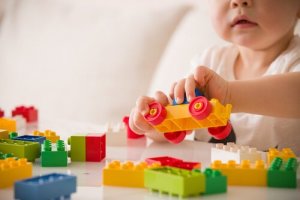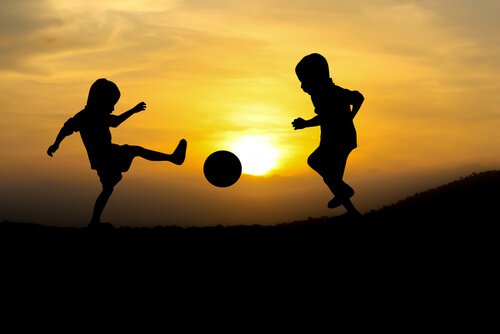The Relationship Between Play and Child Development

Playing is something kids do naturally. The ability to play, at first glance, may seem to serve no purpose beyond that of fun and entertainment. However, a few decades ago psychologists began to wonder whether that was actually the case. Ever since, educational psychologists have been investigating the relationship between play and child development.
There is one key aspect we need to understand. From a development perspective, performing the actions we enjoy is more than just for pleasure. From this perspective, if something produces pleasure, it is because it is often useful for our development.
According to this reasoning, play has to have some function or utility. In addition, studies show that if a child has very limited hours of play in childhood, then they usually become very poorly adapted adults.
When it comes to looking into the link between play and child development, we have to open our minds to different theories. These theories are quite different in terms of the evidence that supports them. However, if we want to understand the complex relationship between play and child development, we must adopt a broad perspective and take into account all available data.
Theoretical perspectives of play and child development
One of the first authors to study the topic was Karl Groos. He saw play as a sort of pre-exercise necessary to reach psycho-physiological maturity, and linked it to growth. Play is a type of preparatory exercise to enable the development of certain functions.
Physical games facilitate physical development, while psychological games prepare the child for his social life. In addition, as play is carried out in a safe environment, the child can practice skills without being in danger.
Another completely different point of view is that of Freud. From the psychoanalytic point of view, play is intimately related to the expression of our unconscious impulses. This would allow a human to satisfy his unsatisfied desires in real life.
This theoretical perspective, although it may seem attractive, has very little scientific evidence to support it. It also violates the principle of frugality by which science is governed.

Play as a social activity
For Vygotsky, play is a social activity in which the key aspect is cooperation between members. Thanks to this cooperation, each of the players learns to adopt a role (assumption of roles), a key aspect in adult life.
Vygotsky focused solely on the symbolism in games. He pointed out how simple objects can take on new meanings within the game, a prime example being a brush or broom becoming a horse. We can see that he has a socio-constructivist perspective, since the main function of play for him is to learn to share roles and meanings.
Another author who theorized about play was Jerome Bruner. According to his point of view, play is linked to the immaturity that human beings are born with. This means that we can produce a multitude of very different types of behavior, thereby helping us to be very flexible and adaptable.
Play is therefore very useful in order to experience all these behaviors. It also helps us learn how to adapt to our cultural environmental. By doing this in a playful context, a person is free from pressure and can experiment. At the same time it minimizes possible negative consequences.
Piaget, one of the great development psychologists, also wrote about play. His perspective is that play is no different than non-playful activities. In his eyes, play would be an adaptive action with which the child learns about reality and, in a certain way, controls them. It is highly related to the concepts of assimilation and accommodation that Piaget developed.
The importance of play
There are many different perspectives on the purpose of play. However, the importance of the link between play and child development is clear. In addition, another point we should make is that the different perspectives are not incompatible with each other. The relationship between play and child development can be manifold and enriching.
Now that we know the different possibilities that playing opens up for a child, we can understand its relevance. If play doesn’t exist in a child’s life, it can affect their physical, psychological and social development. That’s why recreational activities are essential in our children’s daily lives, done without pressure and with great motivation.
Learning to play will give the child everything they need to grow in every area of their life. So, let’s not fall into the trap of exchanging their play time for other “intellectual”or “educational” activities that we may consider more important.
The truth of the matter is that without play, their cognitive and intellectual development will be hindered. Don’t forget that before we’re born we’re already growing and developing. For this to continue after birth we must ensure that play is an integral part of their lives. Plus, it’s also so natural and enjoyable!
This text is provided for informational purposes only and does not replace consultation with a professional. If in doubt, consult your specialist.








